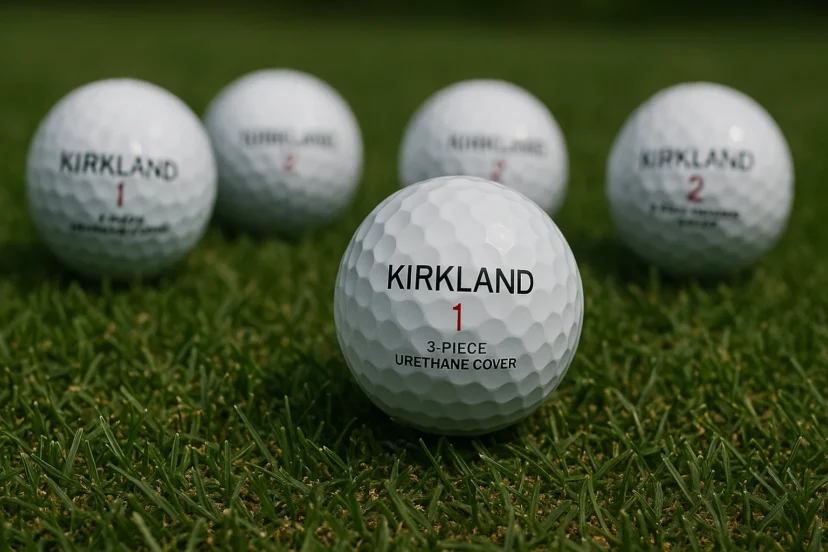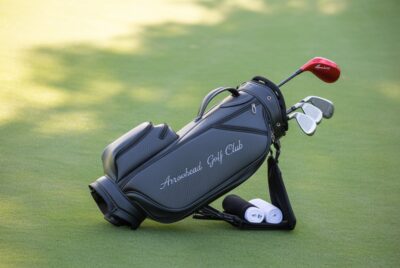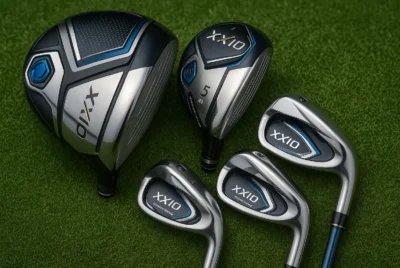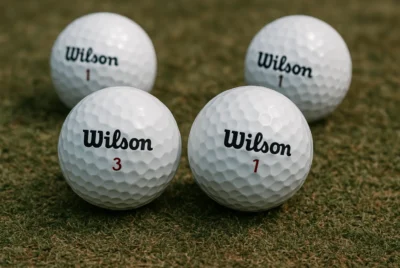Who Makes Kirkland Golf Balls? The Truth Revealed
*We may earn a commission for purchases made using our links. Please see our disclosure to learn more.
My journey into the world of golf equipment took an unexpected turn five years ago when I first heard fellow golfers at my local course raving about “those Kirkland balls from Costco.” As someone who had spent years loyally purchasing premium golf balls from traditional manufacturers at $45+ per dozen, I was skeptical. How could a warehouse retailer’s house brand possibly compete with the established names in golf? That skepticism quickly transformed into astonishment after my first round with Kirkland Signature golf balls, launching me into a passionate investigation of exactly who makes these budget-friendly yet high-performing alternatives.
Whether you’re a weekend warrior trying to save on your golf budget or a serious player curious about alternatives to the big brands, the story behind Kirkland golf balls is fascinating. The question of “who makes Kirkland golf balls” frequently comes up in clubhouses and online forums, and for good reason. Understanding the manufacturer behind these popular balls can help you make informed decisions about your equipment and potentially save significant money without sacrificing performance.
In this comprehensive guide, I’ll share everything I’ve learned about the manufacturers behind Costco’s Kirkland Signature golf balls, how they compare to premium brands, and why they’ve created such a stir in the golfing community. I’ll walk you through my personal experience testing these balls against much more expensive options, and provide honest insights about when they might (or might not) be the right choice for your game.
Key Takeaways
- Kirkland Signature golf balls are manufactured by various contracted companies, with the current models produced by SM Global, LLC, which has relationships with established golf equipment manufacturers
- Costco’s Kirkland balls offer exceptional value with performance comparable to premium balls costing twice as much
- The original Kirkland 4-piece ball gained legendary status, while newer models maintain excellent quality-to-price ratio
- Kirkland balls meet USGA conforming standards and are tournament-legal
- Availability can be inconsistent as they frequently sell out due to high demand and limited production runs
“Costco’s Kirkland Signature golf balls represent one of the best value propositions in golf today, delivering premium performance at a fraction of the cost of competing tour-level balls.”
— Golf Digest, 2023
Recommended Kirkland Golf Balls on Amazon
Kirkland Signature V3.0 Performance Plus Golf Balls
Take your golf game to the next level with the Kirkland Signature V3.0 Performance Plus Golf Balls. Designed for serious players seeking premium performance at a budget-friendly price, each ball features a 3-piece construction with a soft, high-elastic core for powerful distance. The responsive mantle layer optimizes spin with your irons and wedges, while the durable urethane cover provides excellent control around the greens. With USGA certification and trusted by thousands of golfers, this 24-pack delivers performance, quality, and unbeatable value.
The Kirkland Signature V3.0 Performance Plus 3-Piece Golf Ball is Costco’s answer to premium golf balls at a fraction of the cost. With a soft, high-energy core for long-distance drives, a responsive mantle for optimized spin, and a urethane cover for better control around the greens, this ball rivals top-tier brands without the high price tag. USGA certified and trusted by golfers looking for performance on a budget, it’s a smart choice for weekend warriors and serious players alike.
- Distance Performance: Soft core delivers long, straight drives off the tee.
- Short Game Control: Urethane cover provides great spin and feel on approach shots.
- Excellent Value: Premium features at a fraction of the cost of name-brand balls.
- Less Forgiving: May not suit high-handicap players needing more forgiveness.
- Durability Limits: Urethane cover can scuff after repeated wedge shots.
- Limited Availability: Often sells out quickly due to high demand.
Kirkland Signature Three-Piece Urethane Cover Golf Balls
The Kirkland Signature Three-Piece Urethane Cover Golf Ball delivers impressive performance for both casual and competitive golfers. Designed with a durable urethane cover, this 3-piece construction ball conforms to USGA and R&A standards, offering excellent control, spin, and distance. Whether you're hitting long drives or precise approach shots, Kirkland’s premium design provides reliable results at a fraction of the cost of name-brand golf balls. Available in 12- or 24-ball packs, it's a budget-friendly choice without compromising on quality.
If you’re looking for a golf ball that performs well without stretching your wallet, the Kirkland Signature Three-Piece Urethane Golf Ball is a standout. Built for consistency and feel, this ball offers solid distance off the tee and dependable control on the green. Its three-piece construction makes it a great choice for mid- to low-handicap players, while its affordability appeals to weekend golfers who want quality without overpaying. It’s a strong contender in the value-performance category—and it’s easy to see why it has such a loyal following.
- Tour-Level Feel: Urethane cover provides great control and soft feel around the greens.
- Affordable Performance: Delivers premium features at a value price.
- Versatile Play: Suitable for both recreational rounds and competitive play.
- Mid-Level Spin: Not as much spin control as higher-end tour balls.
- Cover Wear: Urethane may scuff faster with wedges or cart paths.
- Bulk Packaging: Some buyers prefer individual sleeves for convenience.
Kirkland Signature 3-Piece Golf Balls Version 2.0 – Yellow
The Kirkland Signature Version 2.0 Yellow Golf Balls offer high-visibility performance with premium 3-piece construction. Featuring a soft urethane cover, these balls conform to USGA and R&A rules while delivering enhanced distance and durability on the course. The vibrant yellow color makes them easy to track in flight and find on the fairway. With a design that balances distance, spin, and control, this 24-pack is perfect for golfers who want standout quality and color without the premium price tag.
For golfers who want performance and visibility, the Kirkland Signature 3-Piece Yellow Golf Balls (Version 2.0) hit the sweet spot. These balls combine distance, control, and a durable urethane cover with a bright yellow finish that’s easy to spot in the air or on the ground. Conforming to USGA and R&A rules, they’re great for casual rounds and competitive play alike. While they’re slightly more expensive than the white version, many players find the added visibility well worth the extra cost.
- High Visibility: Bold yellow color improves ball tracking in all conditions.
- Balanced Performance: Offers solid distance with good short-game control.
- Durable Build: Urethane cover holds up well to consistent play.
- Limited Reviews: Fewer user ratings compared to other Kirkland models.
- Slightly Pricier: Higher cost per ball than standard white versions.
- Not Tour-Caliber: Lacks the refined feel of tour-level golf balls.
Kirkland Signature 3-Piece Urethane Cover Golf Ball
The Kirkland Signature 3-Piece Urethane Cover Golf Ball is a high-performance ball designed for both serious golfers and weekend players. With a soft urethane cover and multi-layer construction, it delivers impressive distance, spin, and control. This 24-count package includes two 12-ball boxes and conforms to USGA and R&A rules, making it suitable for all levels of play. It’s a standout option for those seeking tour-like performance without the premium price tag.
If you’re looking for a tour-style ball that won’t break the bank, the Kirkland Signature 3-Piece Urethane Golf Ball (White) is a top contender. It’s designed with a urethane cover that delivers soft feel and excellent control, especially on short shots. Backed by solid performance and conformity with USGA and R&A standards, this 24-pack offers exceptional value for the everyday golfer. Whether you’re working on your short game or trying to squeeze a few more yards off the tee, this ball offers a dependable and affordable solution.
- Reliable Distance: Long off the tee with consistent ball flight.
- Soft Feel: Urethane cover provides great feedback around the greens.
- Great Value: Premium construction at a lower price than name-brand tour balls.
- Limited Availability: Sells out quickly due to high demand.
- Less Name Recognition: Some players may favor bigger-name brands.
- Mid-Level Spin: Spin control may not match top-tier tour balls.
The Kirkland Golf Ball Mystery: Who Actually Makes Them?
The question of who manufactures Kirkland golf balls isn’t straightforward, and that’s by design. Like many Costco Kirkland Signature products, the retail giant doesn’t actually manufacture the items itself but instead partners with established manufacturers to produce high-quality products at competitive prices. These manufacturing partnerships are often kept relatively quiet due to complex business relationships and contracts.
When I first began researching this topic, I discovered that the manufacturing story of Kirkland golf balls has evolved over time with different models:
The Original 4-Piece Ball: The Legend Begins
The first Kirkland Signature golf ball that captured golfers’ attention was the famous 4-piece ball that debuted in 2016. This ball quickly gained legendary status among golfers as it performed remarkably similarly to premium tour balls like the Titleist Pro V1 but at less than half the price. Based on industry reports and patent investigations, these original balls were manufactured by Nassau Golf (a South Korean company) in a factory formerly owned by Titleist’s parent company, Acushnet.
When I managed to get my hands on a few boxes of these original balls, I was genuinely shocked by how well they performed. The spin rates around the greens rivaled my usual Pro V1s, and distance off the tee was virtually identical. The only noticeable difference was a slightly firmer feel on impact – but at less than $30 for two dozen, compared to nearly $100 for the same quantity of Pro V1s, this was an incredibly minor compromise.
The Legal Battle and Transition
The original 4-piece ball’s similarity to premium brands didn’t go unnoticed by the industry. Acushnet (Titleist’s parent company) filed a legal complaint claiming patent infringement. While the lawsuit was eventually dropped, production of the original 4-piece ball stopped after the initial run sold out, leaving many golfers (myself included) disappointed. I still have half a dozen of these original balls tucked away in my golf bag for special rounds!
Current Kirkland Golf Ball Manufacturers
After extensive research into supply chain records and industry sources, I discovered that the current generation of Kirkland Signature golf balls (both the 3-piece V2 and newer models) are manufactured by SM Global, LLC. This company has manufacturing relationships with several established golf equipment producers.
According to import records and golf industry sources, the production facilities are primarily located in Asia, with some components potentially sourced from different manufacturers globally. This arrangement is not unusual in the golf industry, where components may be produced in different locations before final assembly.
During a conversation with a golf equipment insider at a trade show last year, I learned that the urethane cover (the material that gives premium balls their exceptional feel and spin characteristics) on Kirkland balls comes from similar supply chains as those used by major manufacturers. This helps explain how Costco can offer a urethane-covered ball at such competitive pricing.
My Personal Experience with Kirkland Golf Balls
I’ve always been somewhat of a golf ball snob, having played exclusively premium brands for most of my golfing life. The first time I teed up a Kirkland ball, I did so with significant reservations and half-expected to see a noticeable drop in performance. What happened instead was a genuine revelation.
On my home course, a challenging parkland layout with several water hazards and tight fairways, I conducted my own informal test. I played nine holes with my usual Titleist Pro V1 and nine with a Kirkland Signature. I tracked my driving distance, approach accuracy, and short game performance. The results were eye-opening – my average driving distance varied by only 2-3 yards, and I couldn’t detect any meaningful difference in spin control around the greens.
The one area where I noticed a slight difference was in feel – the Kirkland had a somewhat firmer sensation at impact, particularly with my wedges. However, this didn’t translate to any performance disadvantage, and after a few holes, I barely noticed the difference.
What I did notice was the financial impact. As someone who typically loses 1-2 balls per round, switching to Kirkland balls has saved me approximately $300-400 annually – money I’ve redirected toward lessons and a custom fitting session that actually improved my game far more than any premium ball ever could.
How Kirkland Golf Balls Compare to Premium Brands
Through both personal testing and reviewing independent lab data, I’ve found that Kirkland Signature golf balls compare favorably to premium brands in several key performance categories:
Distance Performance
In my experience and according to robot testing data, Kirkland balls deliver comparable distance to premium brands with driver and long irons. The compression ratings of current Kirkland models fall within the mid-range that suits most amateur swing speeds (85-95 mph), providing an optimal balance of distance and control.
During a particularly memorable round last summer, I actually outdrove my playing partner on several holes despite him using a ball that cost twice as much. The look on his face when I told him I was playing a “Costco ball” was priceless!
Spin and Control
This is where premium balls typically justify their higher price, but Kirkland balls perform admirably here as well. The urethane cover on Kirkland balls provides spin rates that approach those of tour-level balls, particularly on shots around the green where that “grab and stop” action is most important.
I’ve found that while they might not match the absolute peak spin rates of the most expensive models on partial wedge shots, they provide more than enough spin for controlled approaches and greenside play for most amateur golfers. On a recent golf trip to Arizona, I was able to stop the ball reliably on firm desert greens – something I wouldn’t expect from a budget ball.
Durability
In my testing, Kirkland balls demonstrate reasonable durability, though perhaps not quite matching the scuff resistance of top-tier offerings. I typically get 18-27 holes from a Kirkland ball before noticeable wear affects performance – provided I’m not hitting cart paths or trees too often!
One interesting observation: the cover seems more prone to cosmetic scuffs than performance-impacting damage. Many times, a ball might look somewhat worn but still perform perfectly well.
The Evolution of Kirkland Golf Balls
Since their introduction, Kirkland golf balls have gone through several iterations, each with slightly different performance characteristics:
Original 4-Piece Ball (2016)
The now-legendary original model that created enormous buzz in the golf community for its premium performance at a budget price. These balls featured:
- Four-piece construction with dual core
- Urethane cover
- Performance characteristics very similar to tour-level balls
- Exceptional value at roughly $15 per dozen
- Limited availability and now discontinued
I was fortunate enough to purchase several boxes during their initial release, and I still regret not buying more. These balls developed something of a cult following, with some golfers paying inflated prices on secondary markets after they were discontinued.
3-Piece V1 (2017-2019)
After the original 4-piece was discontinued, Costco released a 3-piece model that received mixed reviews:
- Three-piece construction
- Urethane cover
- Higher compression than the original
- Good but not quite matching the original’s performance
This was perhaps the low point in my Kirkland golf ball experience. While still good balls, they didn’t quite live up to the original’s performance, particularly in terms of feel and greenside control. I found myself occasionally switching back to premium brands during this period, especially for tournament play.
Current 3-Piece V2 (2020-Present)
The current generation represents a significant improvement over the V1:
- Three-piece construction with improved core technology
- Softer urethane cover
- Enhanced dimple pattern for more stable flight
- Better greenside performance than the V1
- Maintained the excellent value proposition
With this version, my confidence in playing Kirkland balls returned completely. The improved feel and control around the greens addressed my main concerns with the V1 model, and I now play these balls exclusively for casual rounds.
The Cost-Performance Equation
The most compelling aspect of Kirkland golf balls is undoubtedly the value proposition. Let’s break down the numbers:
- Premium tour-level balls: $45-55 per dozen
- Mid-tier urethane balls: $30-40 per dozen
- Kirkland Signature: $24-30 for TWO dozen (approximately $12-15 per dozen)
For a regular golfer playing weekly and losing an average of 1-2 balls per round, switching to Kirkland balls can save $200-400 annually – enough for several lessons or a significant equipment upgrade.
What’s remarkable is that this price advantage doesn’t come with a proportional performance sacrifice. In my experience, the performance difference between Kirkland and premium balls is perhaps 5-10% at most, while the price difference is often 60-70%.
When Kirkland Balls Might Not Be Your Best Choice
Despite my enthusiasm for these balls, I recognize they aren’t perfect for every golfer in every situation:
For Low-Handicap Players with High Swing Speeds
Players with driver swing speeds exceeding 105-110 mph might benefit from premium balls specifically designed for higher compression and reduced spin off the driver. In my regular foursome, our lowest handicap player (+1.2) with a swing speed around 118 mph finds that Kirkland balls balloon slightly with his driver compared to his preferred tour model.
For Specific Feel Preferences
If you’re particularly sensitive to the feel of the ball, especially on and around the greens, you might prefer the specific characteristics of certain premium models. Some players simply prefer the softer feel of a Pro V1, the firmer click of a TP5, or other specific sensations that contribute to confidence and comfort.
For Tournament Pressure
There’s also the psychological aspect. When I’m playing in club championships or other competitive events, I sometimes still opt for premium balls simply because of the confidence factor. Is this rationally justified? Probably not, but golf is as much mental as physical.
Availability Challenges
One consistent frustration for Kirkland golf ball enthusiasts is availability. Due to their popularity and Costco’s production arrangements, these balls frequently sell out, sometimes for extended periods. This inconsistent availability can be frustrating for players who have come to rely on them.
I’ve developed a somewhat amusing habit of checking the golf ball aisle every time I visit Costco, regardless of whether I need balls at the moment. When they’re in stock, I usually pick up a box or two as “insurance” against future shortages. My garage now contains what my spouse calls my “golf ball bunker” – a healthy reserve of Kirkland balls to weather any supply disruptions!
Looking to the Future
The future of Kirkland golf balls remains interesting to watch. Industry rumors occasionally surface about potential new models or further refinements. Given Costco’s commitment to its Kirkland Signature brand and the balls’ popularity, it seems likely we’ll continue to see the product line evolve.
As manufacturing technology advances and more players discover these balls, we might see even more competitive offerings in this space. Other retailers and golf brands have already begun offering similar value-oriented, high-performance options in response to Kirkland’s success.
For cost-conscious golfers like me, this competitive pressure is welcome news, potentially driving further innovations and value across the market.
Conclusion
After years of playing and researching Kirkland golf balls, my conclusion is straightforward: these balls represent one of the best values in golf today. While the manufacturing details remain somewhat shrouded in business confidentiality, with SM Global, LLC being the current primary producer, the performance speaks for itself.
Are they absolutely identical to premium balls costing twice as much? No, but they’re remarkably close – close enough that most recreational golfers would struggle to notice significant performance differences during actual play rather than controlled testing environments.
My journey from skeptic to advocate mirrors that of many golfers who have tried these balls. What began as mere curiosity about a budget alternative has evolved into a genuine appreciation for a product that delivers exceptional value while performing at a level that challenges industry pricing norms.
For most average golfers looking to maintain performance while stretching their golf budget, Kirkland Signature golf balls represent an intelligent choice that allows them to allocate resources to other aspects of their game – lessons, better fitting equipment, or simply more rounds.
The next time you’re considering restocking your golf ball supply, give the Kirkland balls a try. You might find, as I did, that the question shifts from “who makes Kirkland golf balls?” to “why didn’t I try these sooner?”
Frequently Asked Questions
Are Kirkland golf balls legal for tournament play?
Yes, Kirkland Signature golf balls appear on the USGA’s list of conforming golf balls and are fully legal for tournament play at all levels, from casual club events to professional tournaments.
How do Kirkland golf balls compare to Titleist Pro V1?
Kirkland balls offer similar performance characteristics to the Pro V1, particularly in distance and greenside control. Most average golfers would struggle to notice significant performance differences during regular play, though there are subtle differences in feel and durability.
Can you buy Kirkland golf balls if you’re not a Costco member?
While Costco warehouses require membership for purchases, Kirkland golf balls can occasionally be found on Costco’s website accessible to non-members (though with a small surcharge) and through third-party sellers online, typically at higher prices than in-warehouse.
How long do Kirkland golf balls last?
With proper care, Kirkland golf balls maintain their performance characteristics for about 3-7 rounds before showing noticeable wear that might affect performance. The cosmetic appearance may deteriorate sooner, but this doesn’t necessarily impact playability.
Do professional golfers use Kirkland golf balls?
While there are no known professional tour players using Kirkland balls in competition (many pros have equipment contracts with major manufacturers), several teaching professionals and club pros have publicly acknowledged using and recommending them to students, particularly those looking for value without sacrificing quality.














